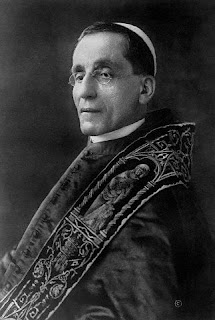Friday, August 15

Can our blog use every painting of the Assumption on the Internet? Stay tuned.
Because of its rather recent dogmatic definition and its Mariological (and thus, to some "un-ecumenical") nature, the Assumption can be a stumbling block to many, such as Nicholas Kristof in today's NY Times. (Thanks to Mark Shea for the link) But I think that upon further reflection, it's easy to see how the Assumption would flow out of other doctrines about Mary; in essence, it is the natural conclusion of her entire life, and the fulfillment of two important passages from St. Paul.
In Colossians 3:3, St. Paul says that "If then you have been raised with Christ, seek the things that are above, where Christ is, seated at the right hand of God. Set your minds on things that are above, not on things that are on earth. For you have died, and your life is hid with Christ in God." Thus, the Assumption rests on the same hinge as the Immaculate Conception: in order for Mary to have "been raised with Christ," her life has to have been formed, from the very beginning by an experience of His saving grace. As Karl Rahner puts it in Theological Investigations, "Mary is she who is taken into predestining grace in Christ's becoming flesh as the victorious and definitive presence of God's mercy in the world, overcoming all sin; and therefore in her case this temporal interval has no meaning. Not because she did not require redemption, but because she is the one member of the redeemed without whom it is impossible to think of the Redemption as victorious." Von Speyr puts it a little differently, writing in Mary in the Redemption: "It cannot simply be said that the Son suffers on the Cross from the Mother. She is redeemed in a pre-light of the Cross. This demonstrates the magnanimity of the Father, a gift in advance from the Father to the Son." Thus, Mary has "been raised with Christ" with the grace of the Immaculate Conception and with her fiat at the Annunciation, that is, her acceptance of the mission that comes with that grace. Moving to the second part of the Colossians quote, regarding Mary's hiddenness, let us turn to Saint Louis de Montfort, writing in True Devotion to Mary: "Mary was singularly hidden during her life. It is on this account that the Holy Ghost and the Church call her Alma Mater - 'Mother secret and hidden.'" Mary is the exemplar of being "hid with Christ in God," appearing very little in the New Testament - St. Paul's ideal in Colossians is her reality. Thus, she is "raised with Christ" immediately, since in death (perhaps) as in life she is the model and example of the Church.
The same applies to Ephesians 1:12: "We who first hoped in Christ have been destined and appointed to live for the praise of his glory." This idea of being the "praise of glory" is the center of the mystical theology of Bl. Elizabeth of the Trinity, and this is nowhere more evident than in her Last Retreat, written just weeks before her death. "Her soul is so simple," Elizabeth says of Mary, "Its movements are so profound that they cannot be detected. She seems to reproduce on earth the life which is that of the divine Being, the simple Being. And she is so transparent, so luminous, that one would mistake her for the light, yet she is but the 'mirror' of the Sun of Justice: 'Speculum jusititiae'!" What a beautiful image to reflect upon, on this feast of the Assumption. By perfectly living this life as "praise of glory" on earth through her hiddenness and prayer, Mary, as von Speyr would say, allowed her mission to be absorbed completely in Christ, and thus became the first to share bodily in His Resureection. We are called to be, like Mary, "hid with Christ," and "the praise of his glory." The closer we exemplify this ideals, the more joy we will have in experiencing one day the life that Mary alone lives now, body and soul with Christ. I don't claim to have offered a definitive, airtight, theological proof for the dogma of the Assumption here, but I hope I've at least provided some material for reflection.












